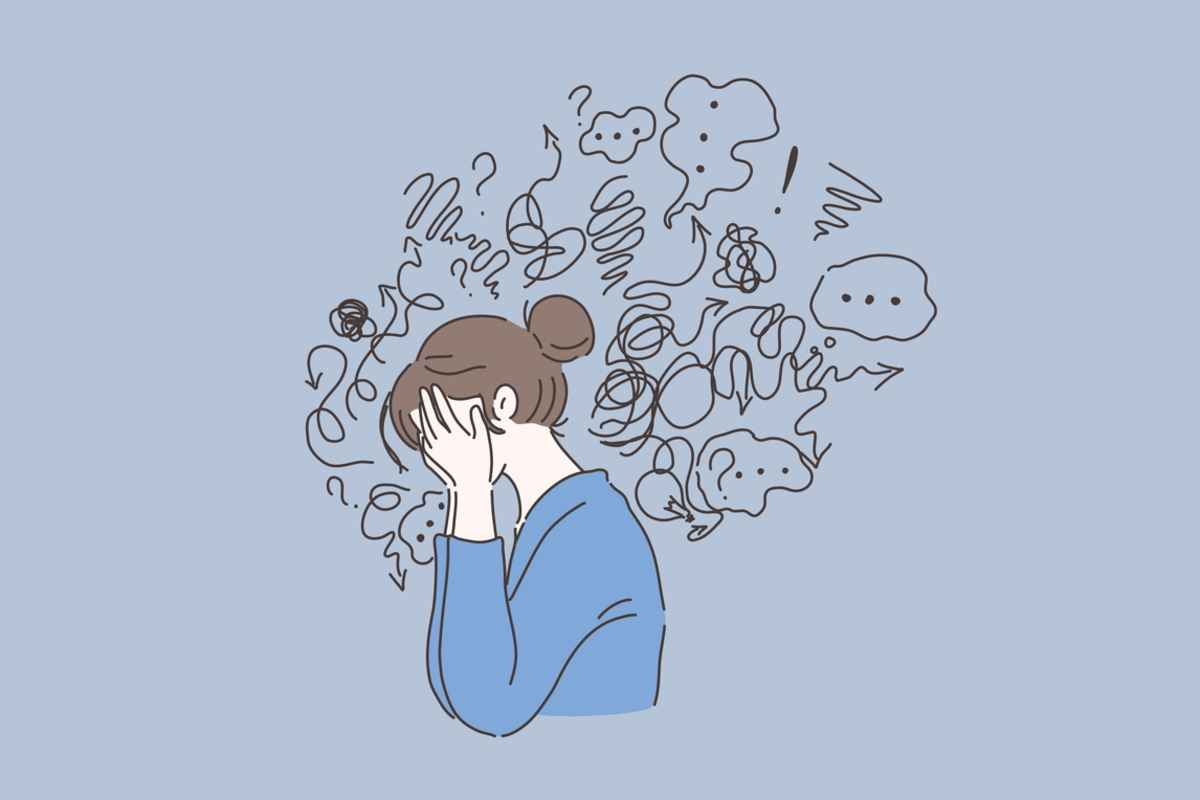The phrase "just because I'm paranoid doesn't mean they're not out to get me" can serve to remind us that scary and far-fetched things do happen to real people, even if talking about their experiences makes them sound like they need therapy. Delusional disorder, a rare diagnosis estimated to affect up to 0.1 percent of the population, can be described by reversing this saying.
Just because the things I'm convinced are true can, in fact, happen, and just because I behave pretty normally and function quite well if you overlook the fact that I'm out of touch with reality, doesn't mean I'm not delusional.

What is delusional disorder?
People with delusions are unshakably convinced of false ideas, even if everything in their environment suggests they are wrong, and to the point that they lose touch with reality. Delusions are sometimes, but definitely not always, accompanied by hallucinations — in which people see, hear, smell, or feel things that aren't there.
Some delusions are called "bizarre" (yes, an actual medical term), and they center around concepts that couldn't plausibly happen.
Examples of bizarre delusions would include a person's belief that their internal organs were replaced with exact copies without any external signs, that aliens are sending them secret messages via the TV, or that blood and bones regularly fall rain down from the sky to punish them.
Schizophrenia, schizoaffective disorder, bipolar disorder, brief psychotic disorder, major depression with psychotic features, and obsessive-compulsive disorder are all mental disorders that can result in so-called bizarre delusions.
The fifth edition of the diagnostic and statistical manual of mental disorders (DSM-5) covers delusional disorder in its chapter on schizophrenia spectrum and other psychotic disorders, but delusional disorder involves only a partial psychosis. Aside from the fact that people with this diagnosis will behave as though the delusion is true (as they believe it to be), they tend to function fairly normally.
What are the diagnostic criteria for delusional disorder?
The DSM-5 diagnostic criteria for delusional disorder are:
- To be diagnosed with delusional disorder, someone will have at least one delusion for at least a month, and often much longer. Previous versions of the DSM specified that these delusions should be nonbizarre, a requirement that was removed in the DSM-5. The spirit of the diagnostic criteria remains the same, though — the delusions people with this diagnosis have tend possible in real life.
- Someone diagnosed with delusional disorder will never have met the diagnostic criteria for schizophrenia — which, in addition to delusions, include symptoms like hallucinations, disorganized speech, and strange physical movements. Some people with delusional disorder will have hallucinations, but they're a minor part of the overall clinical picture and related directly to the delusion(s).
- While the delusions themselves impact the person's life and behavior, their daily functioning is otherwise unremarkable. That is, the behavior of someone with delusional disorder would be considered normative if the delusion were true.
- Someone diagnosed with delusional disorder may at some point have been depressed or manic, but these episodes were short and not correlated to the delusion. The goal of this diagnostic requirement is to make sure someone with bipolar disorder or major depressive disorder with psychotic features isn't wrongly diagnosed with delusional disorder.
- A diagnosing mental health professional will have to rule the possibility that the symptoms are induced by another mental disorder, by medications or street drugs, or in fact true, out.
What types of false beliefs are common in people with delusional disorder?
Many — but not all — delusions fall into established "themes":
- Delusions of love, also called erotomanic delusions, cause a person to persistently believe that someone is in love with them, despite all evidence to the contrary.
- Jealous delusions, wherein the person is falsely convinced that their romantic partner is cheating on them.
- Delusions of grandeur, in which the person is under the impression that they are somehow very important in a specific way, like believing they have discovered a world-changing technological discovery that someone else stole from them.
- Delusions of persecution cause someone to believe that they're being spied on, followed, are under targeted surveillance, or some group of people is conspiring against them. This delusion doesn't necessarily have to involve government agencies or big companies; the persistent false belief that someone's home-owners' association is trying to drive them out of their neighborhood with low-key but chronic harassment would count, for instance.
- Somatic delusions are related to bodily processes or symptoms, and one example could be the false belief that the person has been infested with parasitic worms (even after this diagnosis was ruled out), leading to physical sensations that might match such an infection.
It is possible to have only one delusion, to have several with one being the most prominent, or to have several delusions that affect your life equally.
How is delusional disorder diagnosed?
This diagnosis will therefore take time, multiple kinds of tests including often blood tests, and psychological evaluations — when it is made at all, because people with delusions do not realize their beliefs are false by definition, and are more likely to seek medical assistance for physical ailments than to see a psychologist or psychiatrist.
Once a diagnosis of delusional disorder is reached, antipsychotic medications, antidepressants, and medications designed to manage anxiety may all help reduce the symptoms. Talk therapy is another essential component in the treatment of delusional disorder. People who do receive treatment may reach remission quite quickly, or their symptoms may continue to pose a challenge for them and the doctors and therapists involved in their treatment.


Your thoughts on this